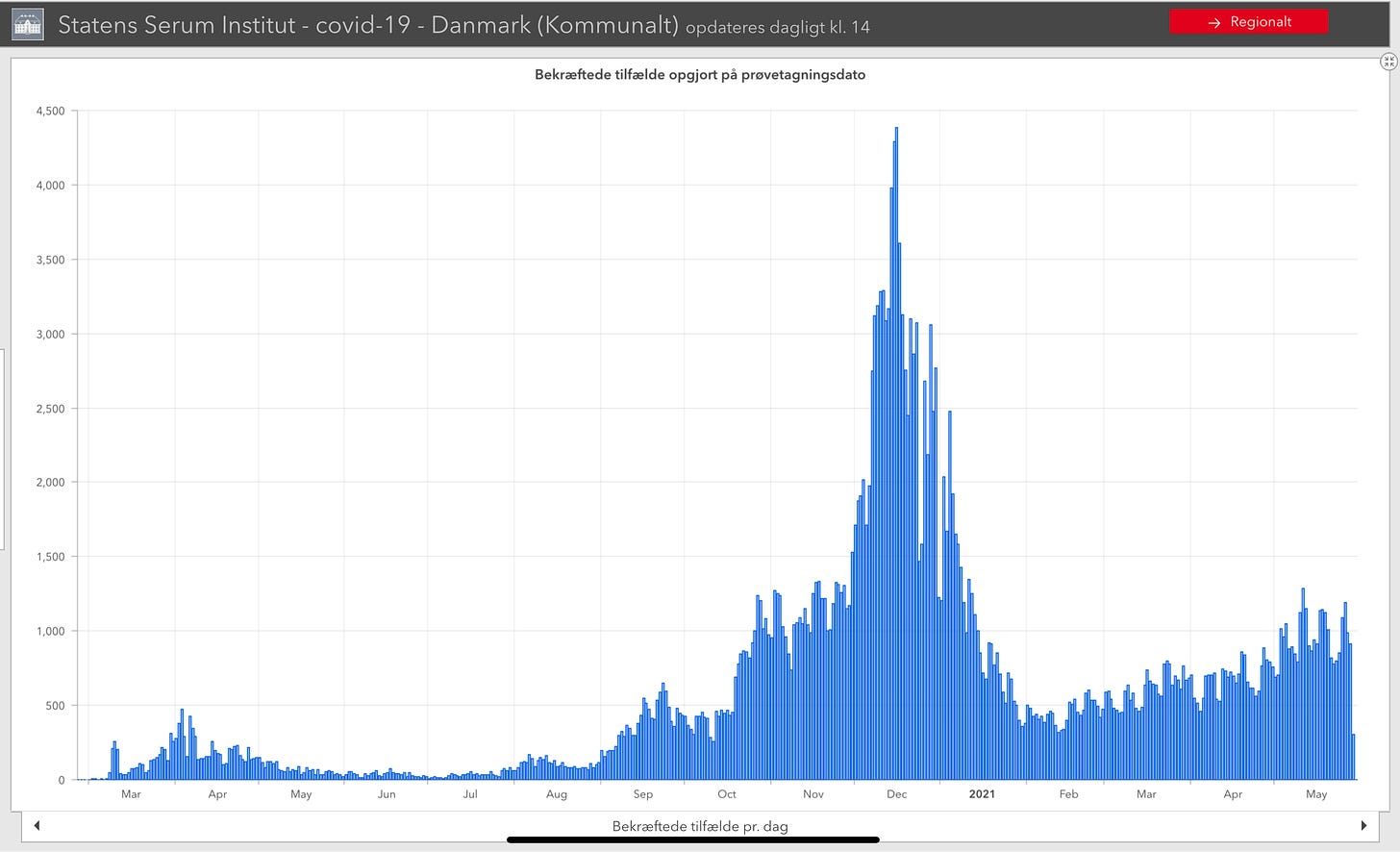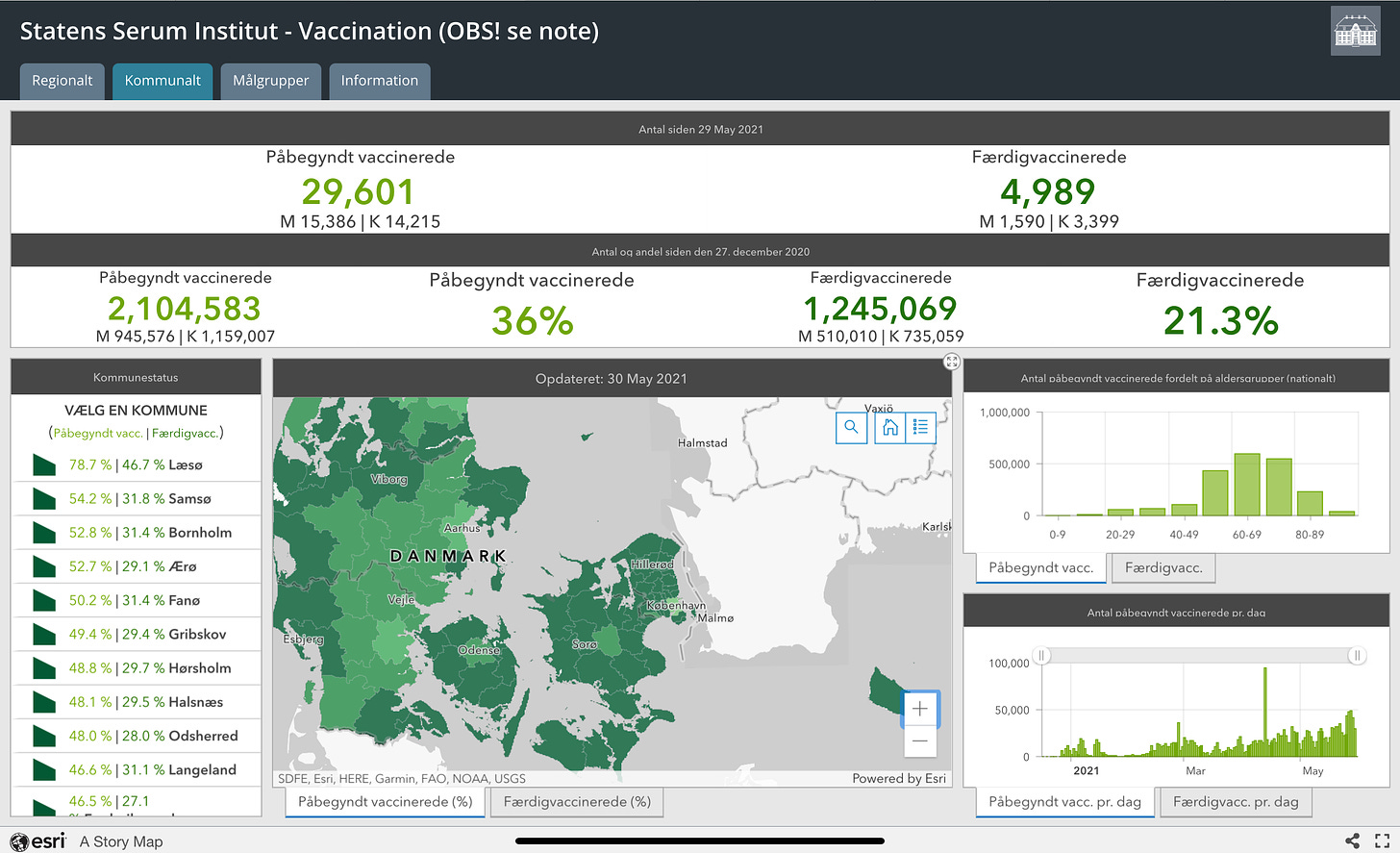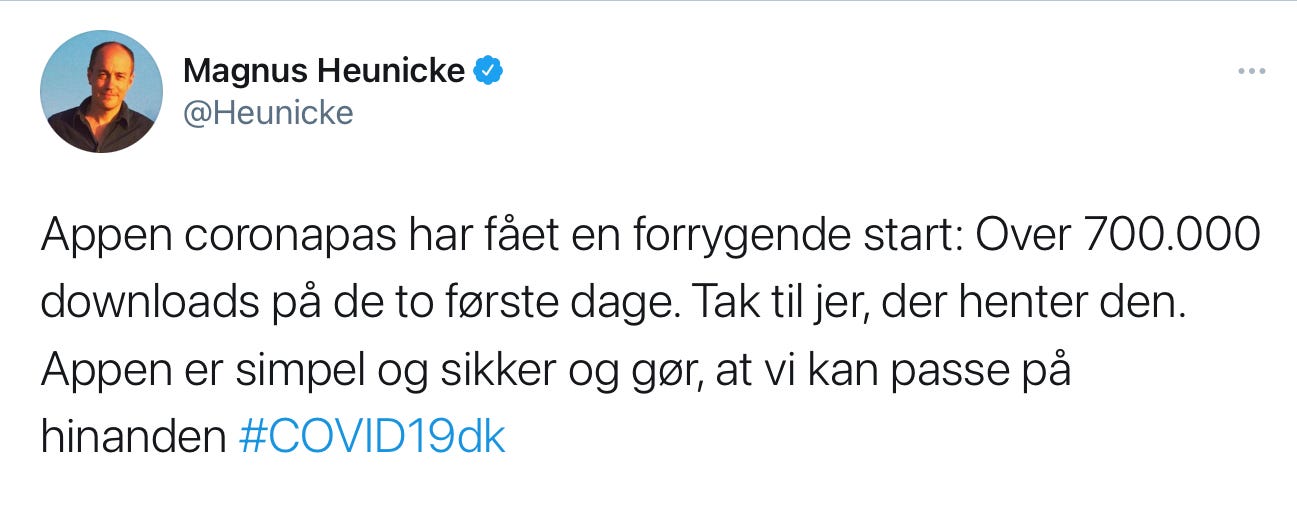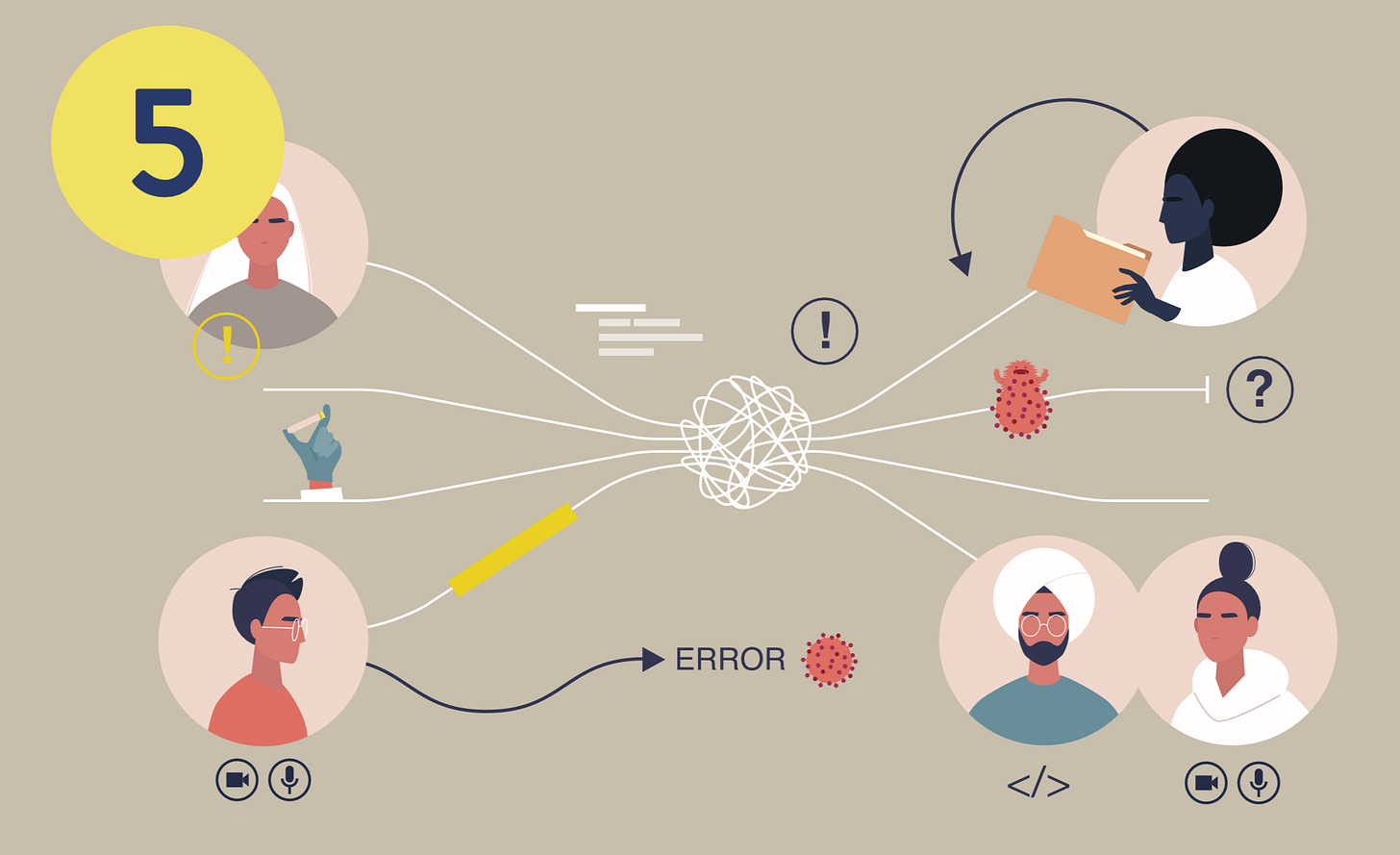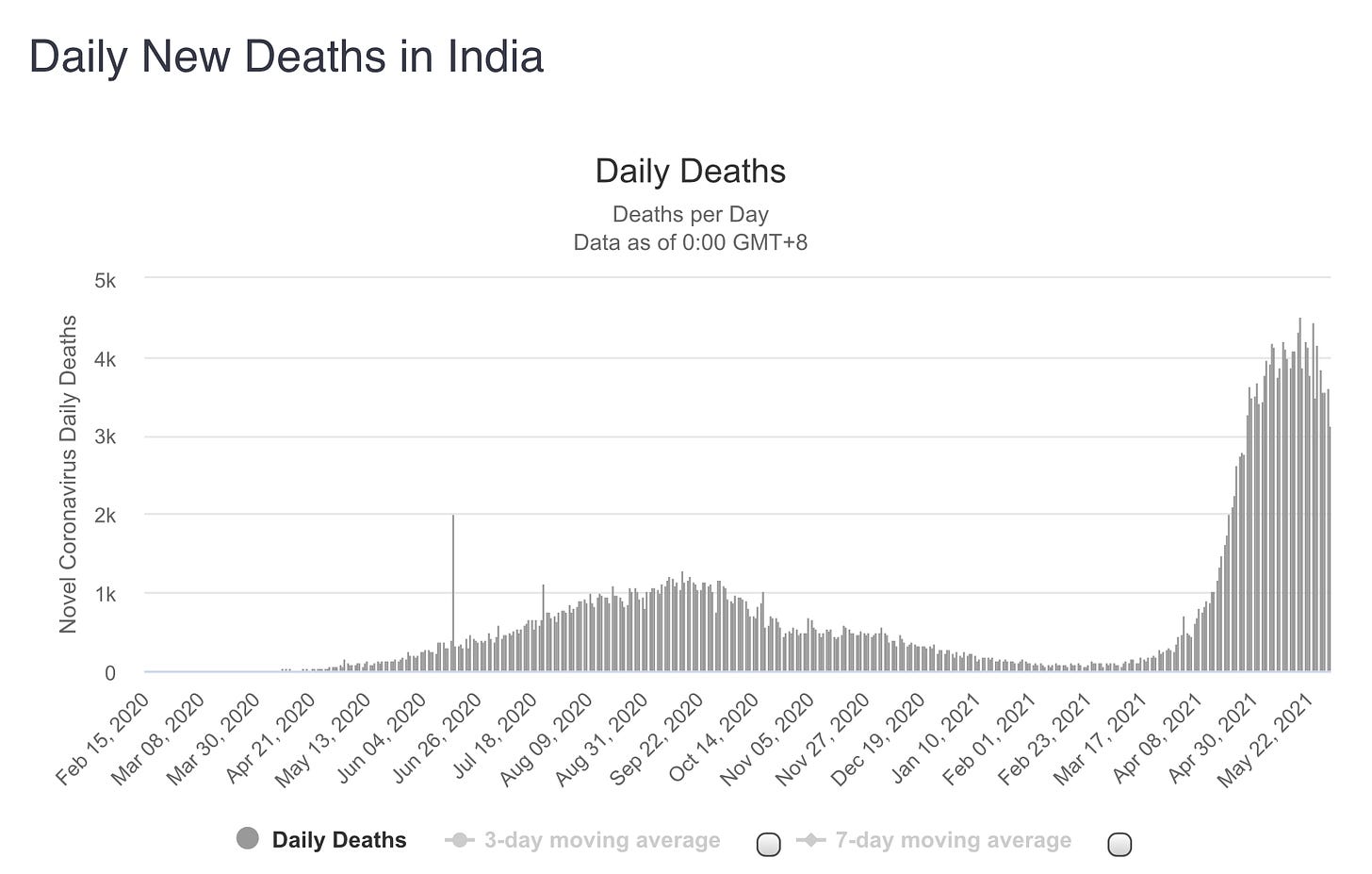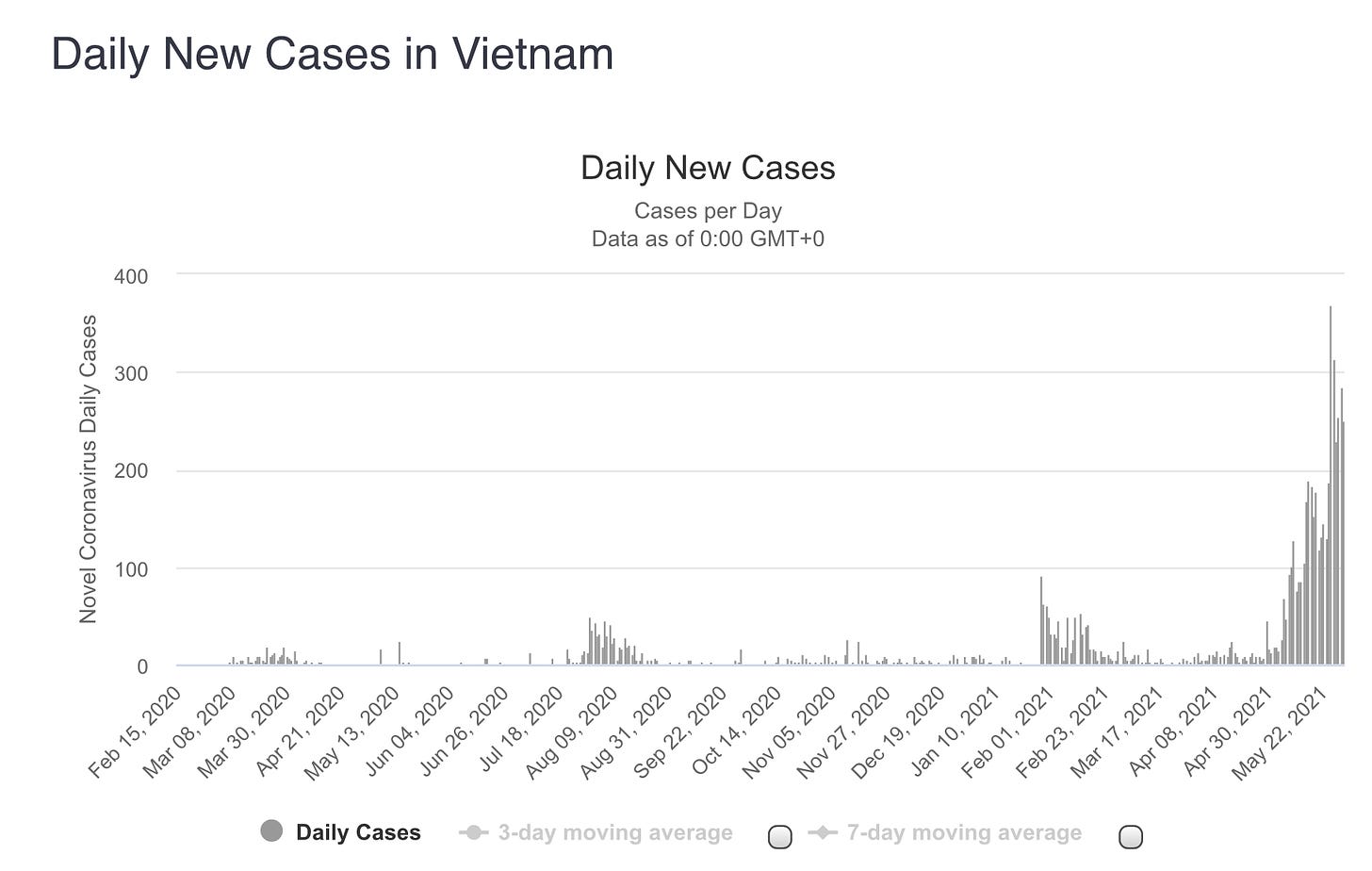🇩🇰
The big football win and subsequent celebration at Brøndby Stadium early last week is now looking like a COVID super-spreader event. The Danish Agency for Patient Safety said on Sunday the number of confirmed coronavirus infections linked directly to the event has now grown to 74. The agency is urging anyone who was at the game or who took part in celebrating the big win in the streets outside the stadium to get tested right away. It says those people should follow up with a second corona test 48 hours after the first.
-
On Friday, the European Medicines Agency approved an application from Pfizer/BioNTech to expand the use of its vaccine to those as young as 12 years old. While EU countries like Germany will begin vaccinating children this week, the situation is a little more clouded in Denmark. Sundhedsstyrelsen, the Danish National Health Authority, is not yet certain it will follow suit.
Deputy Director Helene Bilsted Probst told DR that they are examining whether it is necessary to vaccinate children in Denmark or not. She says the board will deliberate on the issue and announce what course of action they will take “in the next few weeks.” Probst notes that Denmark already vaccinating children who are considered at increased risk with the requirement of a recommendation from their pediatrician.
-
Denmark added 1,987 COVID infections and four more deaths over the weekend. There were 1,038 infections and four corona deaths reported on Saturday and another 949 infections on Sunday.
On the vaccination campaign, to date there have been 2,104,583 1st dose vaccinations administered (36% of the population) while 1,245,069 people (21.3%) are now fully vaccinated.
Yesterday there were 34,590 total vaccinations done.
-
Vaccinations are progressing swiftly in Region Hovedstaden (Metro Copenhagen), with the health authority now beginning to call people in group 10D 2 to begin the vaccination process. That covers people in Metro Copenhagen in the age groups of 20 to 24 years old and those 40 to 44. As of right now, vaccination invitations have gone out to people born between 1977 and 1978 in one group and those born between 2000 and 2001 in the other.
As of right now, everyone over the age of 45 in Denmark who wants to be vaccinated should have either a vaccination invitation, already have one dose, or have finished the vaccination process.
-
Danish Health Minister Magnus Heunicke took to Twitter on Sunday to say the coronapas app, which debuted on Friday, has had over 700,000 downloads in the last 48 hours. He says it is safe, secure, and “helps us take care of each other.”
-
The limits triggering an automatic lockdown for Danish municipalities and parishes has been increased. For a municipality, the infection incidence rate per 100,000 residents goes from 250 to 300. While the number of positive tests over a seven-day span is lowered slightly to 20.
For parishes, districts within kommunes based on old-church jurisdictions, the incidence rate triggering a lockdown goes from 500 to 600, the positivity percentage is increased from 2.5 to 3, and the limit testing positive over seven days remains at 20.
The new limits were decided upon based on advice from Denmark’s epidemic commission, the health authority, and health ministry.
-
According to Region Nordjylland both Vacciner.dk and coronaprover.dk were offline from last night until this morning. They were take offline to do some “system work” according to the health authority. Both should be up and running again and you can resume booking testing or vaccination times.
-
🇩🇰🇸🇪
Denmark’s Health Minister Magnus Heunicke’s office has told DR in a statement that he has been in contact with his Swedish counterpart about the ICU staffing situation in Sweden. The statement sent to the national broadcaster attributed to the minister says..
“Sweden has not sent a formal request, but we have confirmed from the Danish side that Swedish hospitals can employ Danish health personnel for shorter or longer periods, for example over the summer. A dialogue will now be initiated with the regions on how they can help employees who have a profit and are interested in stepping in and relieving their Swedish colleagues. It is possible because we have good control of the epidemic.”
Sweden’s SVT reports that Swedish Minister of Social Affairs Lena Hallengreen reached out to her ministerial colleagues in both Denmark and Norway looking for some staffing relief. This follows a letter sent from Southern Swedish Regions and municipalities requesting the federal government to formally ask its neighbours for help. Health care staff in Sweden have been worn down by the last two infection waves that were exponentially higher than anything seen last spring. There have been many reports over the months about exhausted staff, low morale, resignations, and stress leaves amid a pandemic that has already exacerbated existing health care staffing shortfalls.
🇸🇪
Hopefully, COVID updates will resume from Sweden on Tuesday. The country’s infectious-disease database, SmiNet, was taken offline last week after it was revealed that it has been the target of several hacking attempts. An official investigation has been launched by police and other Swedish authorities. At this point, we don’t know if the database was accessed or not and if so, what data, if anything, was compromised.
The Swedish Public Health Agency says some adjustments have been made to make the database more secure “which means certain restrictions on data reporting.” It says it might take a few days to iron out the kinks and resume normal reporting.
Sweden last updated its COVID numbers on Thursday.
🇳🇴
After completing a risk assessment the Norwegian Institute of Public Health says the threat posed by the Indian B.1.617.2 coronavirus variant is ‘medium-high.’
The agency notes while the UK variant is still the dominant strain in Norway, over the last four weeks the B.1.617.2 strain has been confirmed in a majority of sequenced positive test results.
Department Director Line Vold
“Even though we have strict measures at the border, we can not guarantee against infections of this variant arriving into the country, and this may be the variant we will see most of in the future. We expect that the epidemic can still be kept under control with effective implementation of current measures and continued rapid vaccinations of as many people as possible.”
The NIPH assesses that B.1.617.2 is “probably” more contagious than the UK variant but it notes “there is no evidence” that it causes a more severe course of the illness. It says the variant is a little more resistant to vaccines, but existing vaccines are still very effective at protecting against serious illness, hospitalization, and death.
In Norway, more than 40 confirmed cases of the variant have been detected, but the health institute thinks there are more out there. Travelers from India caused an outbreak in Vestland county, which has now been declared over. Another outbreak began at a quarantine hotel in Viken and spread to Oslo. In another case, the variant was tracked to people traveling by bus from Sweden to Norway. The NIPH says it has tracked imported cases of B.1.617.2 coming into the country so far from India, Spain, Scotland, Sweden, along with a possible case from Pakistan.
Of those infected, three people had one vaccination dose, two of them were infected more than three weeks after their first inoculation, and two others became ill a few days after their second dose.
-
The Norwegian Institute of Public Health is looking to jumpstart a public conversation about the effects of the pandemic on society and what can be done to meet those challenges.
The NIPH’s Trygve Ottersen says a project called ‘A way out’ has been launched, using images pointing to four possible futures to begin public conversations. The images were derived from interviews with 30 people.
“We have talked to, among others, students, researchers, doctors, and leaders in the public, private and voluntary sector.”
The project poses five questions about pandemic impacts on public health and society: What happens to trust? Are we getting sicker? How will the new everyday life be? How is the outside world changing? And last but not least, will we learn from this pandemic?
“The consequences of the crisis are far more than the number of people infected, sick, and dead from the coronavirus. We want to increase awareness and create reflection on the further development of the pandemic and the ripple effects, both in the population, and among relevant decision-makers.”
He says work must begin now to strengthen the system and better prepare both the institutions and society as a whole for the “next great crisis.”
🇫🇮
Finnish hospitals have noted a concerning development after dealing with an outbreak of the Indian B.1.617.2 variant. The strain was identified as being behind at least 80 COVID infections at hospitals in Kanta-Häme, Southern Finland. The variant-fueled outbreak claimed the lives of seven seniors already dealing with chronic diseases.
Kanta-Häme Hospital District Chief Medical Officer Sally Leskinen told Finnish media outlet Helsingin Sanomat that it seems precautions against COVID that worked before were not working at all against B.1.617.2.
“The Indian variant is extremely transmissible. There’s reason for concern. You can’t belittle this because it’s clear the protective measures that used to be enough have simply not been enough. Wearing surgical masks in all situations and meeting patients with symptoms of an infection in complete protective equipment wasn't enough.”
The outbreak spread to family members of hospital staff and even resulted in large scale exposures in some schools.
“The virus has transmitted easily. In the wards that had infections before the first cases were detected and the chains of infection were contained, 40% of patients became infected.”
A majority of those infected had at least one vaccination dose and some of them, about 5%, got seriously sick.
The outbreak now appears contained.
🇪🇺💉
The number of people across Europe who suffered from severe blood clotting after receiving an AstraZeneca vaccination is now at 316. That is according to the European Medicines Agency. That is an increase from the 142 the EMA reported in April. There have been about 19 million vaccinations using AstraZeneca across the EU to date. The EMA says the overall rate of the severe side effects has actually decreased and the mortality rate is extremely low. The agency emphasizes that the benefits of the vaccine outweigh any disadvantages.
-
The EMA says more evidence is needed to determine if a COVID vaccine booster dose is actually needed. The agency says it is in touch with vaccine makers to discuss existing variant strains and vaccine efficacy. It says currently “preliminary data on the duration of immunity doesn't show the need for a third dose.” The European Union has already inked a deal with Pfizer to ensure up to 1.8 billion mRNA vaccine doses in 2022/23 to meet any need for future booster vaccinations.
🇨🇦
In Canada the big story remains the news, and reaction to it, of the discovery of a grave with the bodies of 215 aboriginal children in it at the site of a former residential school in Kamloops, B.C. Over the weekend Prime Minister Justin Trudeau requested that all flags be lowered to half-mast at all federal buildings and facilities.
But as grief and rage pour out across the country Canada’s Ambassador to the UN, Bob Rae, tweeted out that, shamefully, we knew all along and that there are similar graves at residential schools across the country.
Forensics teams have begun the process of exhuming the bodies in order to try to identify each child.
-
On the COVID front Ontario recorded 2,060 coronavirus infections over the weekend, 1,057 on Saturday and another 1,033 on Sunday. The province remains under a stay at home order.
🇮🇳
In India the number of reported new daily infections has decreased but the death toll each day continues to be very high. Yesterday the country registered 153,485 new infections and another 3,129 deaths. Both numbers remain likely well under-reported.
🇻🇳
Authorities in Vietnam say they have identified a new variant that combines elements of the India and UK variant. According to a report by Reuters officials in Vietnam say this new variant spreads quickly by air. They have yet to public genome data on the variant and the World Health Organization says it has yet to make an assessment of the variant.
Vietnam has been seeing a sudden explosion of coronavirus infections since the end of April in numbers by far the highest the country has ever seen.





